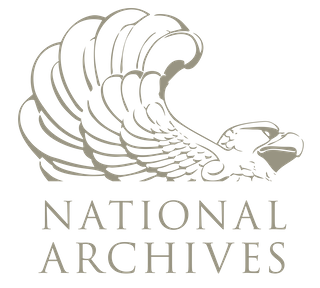The following is an extract from the IAJGS Records Access Alert mailing list and is republished here with permission:
The IAJGS Records Access Alert previously wrote about the National Archives and Records Administration (NARA) approved closing its facility in Seattle—without any public input. The sale is due to the recommendation for sale by the Public Buildings Reform Board (PBRB) and approved sale by the Office of Management and Budget. This would severely hamper access for people in the Pacific Northwest: Alaska, Idaho, Oregon and Washington State. See: https://www.archives.gov/press/press-releases/2020/nr20-37. There was a public hearing on January 19 where over 300 were in attendance- as the Zoom call maxed out at 300, so some testified and then left so others could testify- therefore we are uncertain as to the total number of people who participated. RPAC, of which IAJGS is a sponsoring member, submitted a statement to Washington State Attorney General Ferguson supporting his position in opposition of relocating the NARA records outside of the Pacific NW.
Washington State Attorney General Bob Ferguson issued a statement after John C. Coughenour, Senior Judge of the United States District Court for the Western District of Washington, blocked the federal government’s plan to expedite the sale of Seattle’s National Archives facility and ship the undigitized records 1,000 miles away to Southern California. The statement says Judge Coughenour will issue a preliminary injunction next week in which he will rule that Ferguson’s coalition was likely to prevail in its lawsuit asserting that the federal government acted unlawfully when it moved to sell the National Archives facility and scatter the archival records thousands of miles away.
Ferguson, working with a coalition of regional tribes, community organizations, the City of Seattle and Oregon’s Attorney General, asked the court in January to enjoin, or block, the sale while the litigation continues. The coalition filed nearly 600 pages of declarations from 79 individuals see: https://agportal-s3bucket.s3-us-west-2.amazonaws.com/CombinedDecls_Reduced.pdf
AG Ferguson filed a lawsuit earlier this week asserting the sale violates the conditions Congress placed on agencies’ ability to sell federal properties on an expedited basis and fails to appropriately account for the records’ importance to the Pacific Northwest region. Further, the federal government refused to consult or cooperate with local stakeholders, including tribal governments, in deciding to sell the property. Twenty-nine federally recognized tribes, Alaskan tribal entities, and tribal communities from Washington, Oregon, Idaho and Alaska, as well as nine community organizations, historical preservation societies and museums and Oregon joined Ferguson’s lawsuit.
For nearly six months Ferguson sought public records related to the proposed sale. The agencies refused to produce the public records. the PBRB demanded that taxpayers pay more than $65,000 for records redaction before producing them. In response to the agencies’ refusal to comply with Ferguson’s records request, Ferguson filed three Freedom of Information Act (FOIA) lawsuits in August 2020 and a fourth in September. The PBRB dropped the demand for the $65,000 but requested until March 31 to produce its responsive documents — a date by which the Archives building may have already been sold.
On January 5 the judge ruled in favor of Ferguson ordering the PBRB to turn over previously identified, non-exempt documents within 14 business days and all other responsive non-exempt records within 21 business days.
The Seattle archive facility houses original case files for people who entered the country through ports in Portland and Seattle. These case files include identification photographs, biographical information, interrogation notes, copies of federal and local court records, as well as personal letters and photographs. These files, created to discriminate against Chinese workers, have become a critical resource to Chinese Americans looking for information about their ancestors.
To read more see:
https://www.atg.wa.gov/news/news-releases/79-individuals-share-their-personal-stories-part-ag-led-coalition-s-motion-halt.
Thank you to Barbara Jean Mathews, CG, FASG and president of the Massachusetts Genealogical Council for sharing the aforementioned article with us.
To read the previous IAJGS Records Access Alert postings about the Seattle, WA NARA Building pending sale and removal of documents to 1,000 miles away go to the archives of the IAJGS Records Access Alert at: http://lists.iajgs.org/mailman/private/records-access-alerts. You must be registered to access the archives. To register for the IAJGS Records Access Alert go to: http://lists.iajgs.org/mailman/listinfo/records-access-alerts. You will receive an email response that you have to reply to or the subscription will not be finalized. It is required to include your organization affiliation (genealogy organization, etc.)
Jan Meisels Allen
Chairperson, IAJGS Public Records Access Monitoring Committee